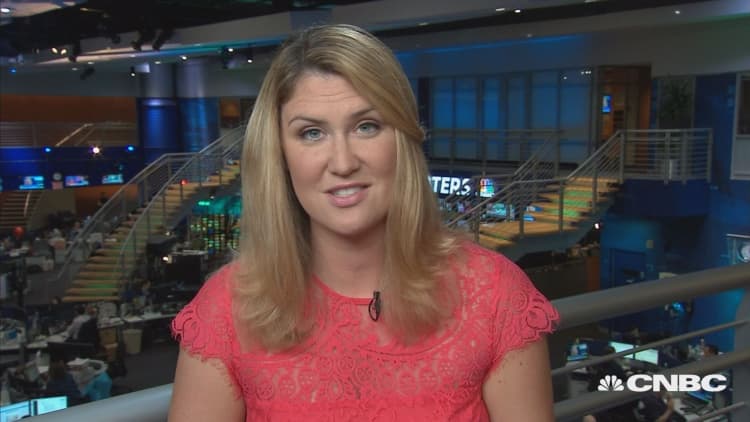Morgan Stanley is starting a new program that will let clients donate money to find treatments and cures for diseases.
The program, called Morgan Stanley GIFT Cures, began today in tandem with a two-day conference the financial services firm is hosting.
All donations made to Morgan Stanley GIFT Cures will be managed through a donor-advised fund to help the mission of the Harrington Discovery Institute.
The Harrington Discovery Institute, in Cleveland, Ohio, works to identify new drug development research and approaches from academic institutions and help turn those discoveries into treatments. It was created in 2012 with $50 million from the Harrington family, who are medical supply entrepreneurs.
The Morgan Stanley GIFT Cures program is focusing on efforts to develop treatments for diseases such as Alzheimer's, cancer, cardiovascular disease, gastrointestinal disease and immune disorders, among others. Clients can choose to either back efforts for a specific condition or broader research that is taking place.
"Our clients will have an opportunity to really be incredibly strategic with their philanthropy and their generosity," said Melanie Schnoll Begun, head of philanthropy management at Morgan Stanley.

Many clients typically choose to give to hospitals or other health-care organizations that helped treat family members who have been affected by certain conditions, Begun said.
Now, they will also be able to make targeted donations to help come up with cures for those diseases, she said.
"The reality is that there are many more diseases than there are drugs to treat them," said Dr. Jonathan Stamler, president of the Harrington Discovery Institute.
The reality is that there are many more diseases than there are drugs to treat them.Dr. Jonathan Stamler
There are about 10,000 categories of disease, but only approximately 500 drugs that treat them, according to Stamler. About 200 to 300 new diseases are discovered each year.
"There are literally hundreds of millions of people who suffer from diseases for which treatments are not available," Stamler said.
The new program comes at a time when donor-advised fund strategies are growing in popularity. Donor-advised funds let individuals put money they plan to give away in one account. Contributions are eligible for a tax deduction in the year they are made. Individuals, however, can let the money stay there until they designate a charity or non-profit.
More from Personal Finance:
Two tax-friendly ways to donate money
Could charitable giving become a tax law casualty?
What you can learn from Sheryl Sandberg's charitable giving plans
Contributions to donor-advised funds as a percentage of total individual giving climbed to 10.2%, or $29.23 billion, in the U.S. in 2017, according to a 2018 annual report by the National Philanthropic Trust. Individual giving totaled $286.65 billion that year.
Donor-advised funds are expected to gain in popularity following the implementation of the Tax Cuts and Jobs Act. Because of the higher standard deduction under the new tax law, fewer people will be able to itemize their deductions, including charitable giving.
That may lead more donors to turn to a strategy called "bunching," whereby they make a lump sum donation in one year, and then spread out the contributions to charities over several years.
High-profile donors who have committed to giving away the bulk of their wealth through the Giving Pledge campaign could also inspire other individuals to increase their giving. MacKenzie Bezos, novelist and ex-wife of Amazon founder Jeff Bezos, most recently joined that list. Facebook Chief Operating Officer Sheryl Sandberg has also signed on and used donor-advised funds as part of her strategy.
The Morgan Stanley program is aimed at ultra-high-net-worth individuals and families, family foundations and family offices.
Clients who participate also will be able to collaborate with other donors in giving strategies and events.


